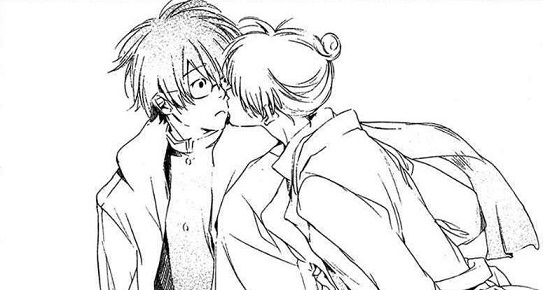
Somebody on the internets recommended My Girl as an underrated manga and from the description it sounded somewhat similar to Usagi Drop, which I’d marathoned a few weeks ago and wished I could’ve had more of. This however turned out to be slightly misleading, because while both stories are about young men just going with the flow suddenly coming into custody of five year old girls, the focus of both series is completely different. Usagi Drop is the story of becoming a parent, of learning to raise a child and overcoming all the every day challenges that come with it, while My Girl isn’t about that at all. Instead this is a story about grief and loss and coming to terms with it, of how this loss shapes and influences your daily life even as you struggle to overcome it and move on while remaining faithful to their memory. Needless to say this hit home for me.
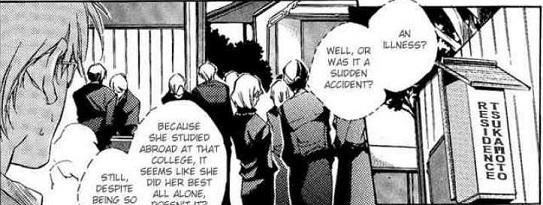
Here’s how the story starts. Kazama Masamune is a 23 year old salaryman stuck in a small town in the middle of nowhere, all because he promised Tsukamoto Youko, his high school love, he’d wait for her there if she ever decided to come back from her studies abroad. That was five years ago. And now he gets a phone call from Youko’s mother that’ll change his life. Youko has not only passed away, but it turns out the reason for her going abroad was that she was pregnant with his child… …and now he has Koharu, his five year old daughter to take care of, with both of them having to cope with each other’s grief over Youko’s death.
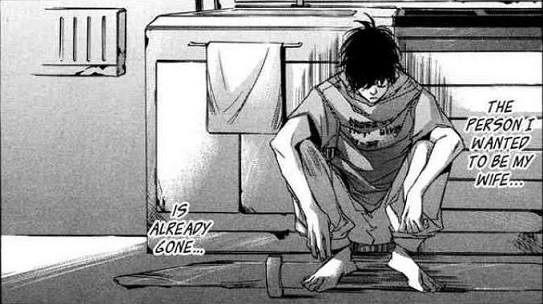
And it’s an understated, realistic sort of grief My Girl portrays, free from melodrama, the kind of sorrow that creeps up on you in the quiet hours, when you’re not distracted by work or school. I recognised a lot of myself in the ways in which both Masamune and Koharu dealt with their grief. No grand, dramatic gestures and atmospheric weather, just memories you come across in unguarded moments. I recognise the desire to keep up a front, to not burden friends or family with your sorrow or loneliness.
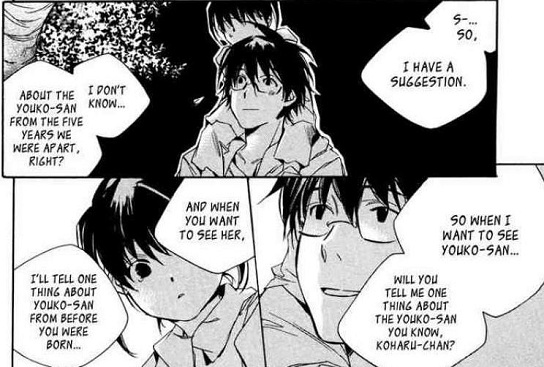
What saves is that they have each other to talk to, to share memories of Youko and discover her all over again. By sharing memories they can keep her alive a little bit, as each of them gets to see a new side of Youko through the stories of the other. All the while they’re also busy building a new life together, one that’s founded in their mutual love for Youko, which quickly transforms into love for each other. That transformation, of Masamume learning to be a father and Koharu learning to live with her father, is a delight to read about, a joyful counterpoint to the sorrow of Youko’s death.

This is also a story about forgetting and not wanting to forget, about letting go and moving on and what this means. From the start, even before he learns of her death, Masamume is exhorted to forget about Youko, to move on from what his family and friends/co-workers see as a childish high school infatuation, to stop waiting for somebody who will never come back to him. Objectively speaking, they’re right to do so. Youko was never going to come back, while he was living his whole life in thrall to his memories of her, in the process also losing sight of the real Youko. And while at first glance his devotion might be seen as romantic, it’s ultimately more cowardice than romance that keeps Masumume waiting for Youko. In a sense it’s only her death that legitimises his choice to wait, as it also finally enables him to start thinking about letting go of his dream.
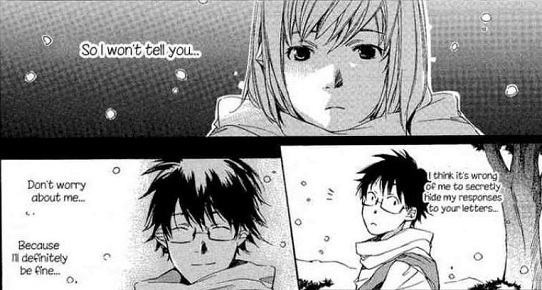
However, that doesn’t mean that this criticism is wholly justified. As he rediscovers Youko through his life with Koharu, as he struggles to deal with her death, it becomes clear he has kept on loving her all those years apart, even though he didn’t fully understand her or her motives. And as he attempst to move forward in the last part of the story, even starts dating a co-worker who had been in love with him even before Youko died, it’s obvious that he can’t move on from her that quickly.
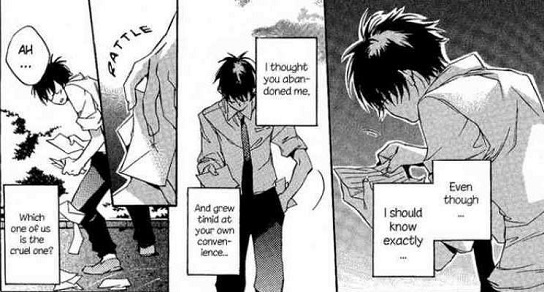
Reading My Girl is an exercise in melancholy, leaving behind an overwhelming sense of regret and what-if. I’ve never quite had an off-screen death of a character reach me so as it did here. Yumeka Sumomo manages to not just convey the grief and sadness of Youko’s death, but also the wasted opportunities for Youko, Masamume and Koharu to have shared their lives. I couldn’t help but wonder what might have been had Youko not ran away abroad, not gone for the noble self sacrifice, or if Masamume had been slightly more proactive rather than just kept passively waiting for her to come back. In a sense both of them chose safety, of not being hurt over the chance at happiness. By not telling him about her pregnancy Youko avoided being rejected by Masamume at the price of any possibility of a true relationship, while by being passive and neither seeking her out nor moving on, Masamume could avoid a similar rejection. Very understandable on both their parts, but damn if that doesn’t hurt to read.
No Comments